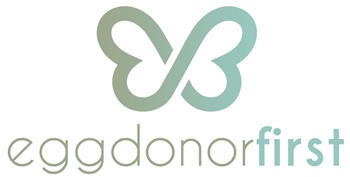
Choosing between fresh and frozen donor eggs for your IVF journey is an important decision. Both options offer the potential to build a family, but they have distinct advantages and disadvantages.
Understanding Fresh Donor Eggs
With fresh donor eggs, the egg donor undergoes an egg retrieval cycle, and the eggs are immediately retrieved and fertilized with the intended father’s sperm.
The Pros of Using Fresh Donor Eggs for IVF
- Potentially Higher Success Rates: Some studies suggest that fresh donor eggs may have slightly higher success rates due to increased egg viability.
- Immediate Availability: If you have a strong desire to begin the IVF process quickly, using fresh donor eggs can be an option as it eliminates the waiting period associated with frozen eggs.
The Cons of Using Fresh Donor Eggs for IVF
- Strict Timing Requirements: Using fresh donor eggs requires precise coordination between the donor’s and recipient’s cycles, which can be challenging and time-consuming.
- Increased Risk of OHSS: There’s a slightly higher risk of ovarian hyperstimulation syndrome (OHSS) for the egg donor in fresh cycles.
- Limited Availability: Finding a suitable fresh egg donor can be more challenging and may require significant coordination and flexibility.
Understanding Frozen Donor Eggs
Frozen donor eggs are retrieved from donors and then frozen using cryopreservation techniques. These frozen eggs can be stored and used at a later time.
The Ups of Using Frozen Donor Eggs for IVF
- Greater Flexibility: Using frozen donor eggs offers significantly more flexibility. You can begin the IVF process on your own timeline without the need for strict cycle synchronization.
- Wider Selection: Frozen donor eggs are typically stored in egg banks, providing access to a wider pool of donors and allowing you to carefully select a donor who meets your specific preferences.
- Reduced Risk of OHSS: Using frozen donor eggs eliminates the risk of OHSS for the egg donor.
The Downs of Using Frozen Donor Eggs for IVF
- Potential for Reduced Egg Viability: The freezing and thawing process can slightly reduce egg viability compared to fresh eggs.
- Success Rates May Vary: While success rates with frozen donor eggs have significantly improved with advancements in freezing technology, they may be slightly lower than with fresh eggs.
Making an Informed Decision
Choosing between fresh and frozen donor eggs is a personal decision.
- Consult with a Fertility Specialist: Your fertility specialist can help you weigh the pros and cons of each option based on your individual circumstances, medical history, and treatment goals.
- Consider Your Priorities: Factors such as your timeline for starting a family, your budget, and your personal preferences should be considered when making your decision.
- Explore Available Options: Thoroughly research available donor egg options at reputable fertility clinics.
Conclusion
Both fresh and frozen donor eggs offer viable pathways to parenthood. By carefully considering your individual needs and circumstances, consulting with your fertility specialist, and exploring all available options, you can make an informed decision that best suits your family-building journey.





